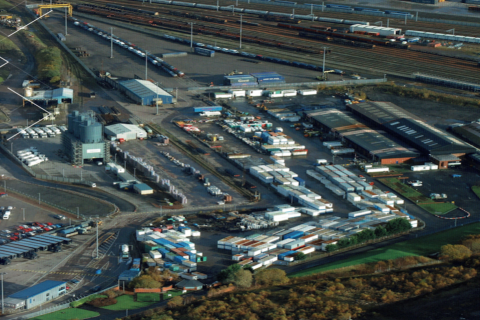One UK dispute solved – eight more break out

A long-standing dispute in Scotland, between the publicly owned ScotRail and the trades union ASLEF, which represents drivers, has been resolved. On the same day, however, eight more operators – all in England – fell into dispute with the same union. A ballot for strike action by ASLEF members has returned a mandate for strike action.
Eight train operating companies running passenger services all over Britain are set to be hit by strikes over the summer. The news comes as a ballot of ASLEF members (formerly the Associated Society of Locomotive Engineers and Firemen) returned a huge majority in favour of strike action. The ballot was even more conclusive than the recent vote from members of the sister union RMT, which brought the network in Great Britain to a halt last month.
Relations resolved in Scotland as they dissolve in England
ASLEF members on ScotRail have voted to accept an improved offer from ScotRail, which included a five per cent increase in basic pay. The dispute had forced the Scottish-government-run operation to implement a much-reduced timetable. The resolution package includes what the union calls an excess revenue share premium (profit share) and additional improvements to other terms and conditions.
Meanwhile, a fresh round of strike action is almost inevitable as members of the same union at eight train companies have voted overwhelmingly for strike action in a dispute over pay. Members at passenger operators Chiltern, GWR, London Overground, Northern, Southeastern, TransPennine, West Midlands, and also at the UK government’s ‘operator of last resort’ on the East Coast Main LNER, have all voted for action, after Ballots returned solid majorities in favour of strikes.
Key workers and massive dividends
“Strikes are always the last resort”, said Mick Whelan, the general secretary of ASLEF. “We do not want to inconvenience passengers – our friends and families use public transport, too – and we do not want to lose money by going on strike. We have been forced into this position by the companies driven by the [UK] government.
‘Many of our members – who were, you will remember, the men and women who moved key workers and goods around the country during the pandemic – have not had a pay rise since 2019. With inflation running at [more than] 10 per cent, those drivers have had a real-terms pay cut over the last three years. We want an increase in line with the cost of living. We want to be able to buy, in 2022, what we could buy in 2021.”

The union refutes claims that there are no funds in the coffers for a pay. The union says that before the pandemic, operators were paying out dividends of 262 million pounds (310 million euros) to the UK government. It also claims that between March 2020 and March 2021, train operators were paid management fees of more than 132 million pounds (156 million euros). UK government sources, including the Department for Transport, have urged the union to think again.
Seeking to cause further misery
The Transport Secretary, Grant Shapps, in a break from campaigning to be the new leader of the Conservative party and the UK’s next Prime Minister, posted on social media that train drivers to hurt those on lower wages with more walkouts. DfT sources told UK media that rather than commit to serious dialogue with the industry, ASLEF are seeking to cause further misery by joining others in disrupting the rail network.
Those incendiary comments are in line with the stance taken by the government over the dispute with the RMT union. In response from ASLEF Mick Whelan said they were happy to talk to anyone to do a deal and make sure Britain’s railways aren’t disrupted. “The government is restricting what the operators can offer but then refusing to get involved in negotiation. They seem to have no interest in finding a resolution.”
ALSEL says it has already successfully concluded pay deals this year with DB Cargo; Eurostar; Freightliner Heavy Haul; Freightliner Intermodal; GB Railfreight; Merseyrail; MTR Elizabeth line; ScotRail, and PRE Metro Operations. However, the union awaits results for ballots closing on Wednesday, 27 July, at Avanti West Coast, CrossCountry, and Direct Rail Services, the rail freight operating arm of Nuclear Transport Solutions. Industrial relations on the British Railway network could be about to go critical.
Also read:
You just read one of our premium articles free of charge
Want full access? Take advantage of our exclusive offer





